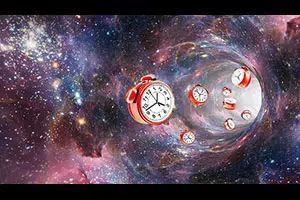 The adjective implausible is used to describe that which is not credible . The term, therefore, is used regarding that which is not credible or does not appear to be true .
The adjective implausible is used to describe that which is not credible . The term, therefore, is used regarding that which is not credible or does not appear to be true .
For example: “Yesterday I was surprised to see an implausible video on Instagram of a dog driving a car” , “The senator's complaint is implausible, no one can think that the president is capable of doing something similar” , “I liked the movie, although the script seemed quite implausible to me.”
Suppose that a representative presents a project to establish a happiness tax . According to this politician, people who are happy should pay a certain amount so that the State, with said revenue, finances an assistance program for those suffering from depression. This proposal is soon branded as implausible by opponents, journalists and public opinion in general: many wonder if it is true that a leader could have such an absurd idea that consists, in a certain way, of quantifying and punishing happiness.
Take the case of a young man who, while giving a friend a hug , makes a bad movement and dislocates his shoulder. This is an unlikely injury , as it is very unlikely that anyone will suffer physical harm from hugging.
It is implausible, on the other hand, that a person who defines himself as a communist and anarchist works in a state office and deposits his savings in an international bank . It can be said that it is incredible that a person who claims to have such an ideology leads a lifestyle like his.
The dictionary of the Royal Spanish Academy tells us that an implausible thing does not have the appearance of being true , or that it is not credible because it does not provide us with any character that rejects its falsehood . This is interesting, since it leads us to think about the circumstantial or contextual nature of the implausible: in the 15th century, a mobile phone with a touch screen would have been implausible, just as time travel is today. This does not mean that everything implausible is on its way to being realized, but that in many cases it is categorized this way due to lack of knowledge .
 The noun of the family of this adjective that serves to refer to something that does not have the quality of "credible" or "possible" is implausibility , just as verisimilitude is verisimilitude . Needless to say, these are not words widely used in everyday life, in informal conversations, but are reserved for more formal contexts or for written language .
The noun of the family of this adjective that serves to refer to something that does not have the quality of "credible" or "possible" is implausibility , just as verisimilitude is verisimilitude . Needless to say, these are not words widely used in everyday life, in informal conversations, but are reserved for more formal contexts or for written language .
Other terms, such as being incredible or absurd, are much more common in everyday speech. Others are listed below: abnormal, improbable, illogical, irrational and inconceivable . Some of its antonyms are ordinary, probable, logical , understandable and normal .
For something to be implausible, therefore, is that it does not seem real once we analyze it with all our cognitive tools, that we contrast it with our experiences . However, it can change state in an instant and become completely ordinary if our point of view also changes.
In Argentina, at the beginning of the 90s, there was a television program titled Juana and her sisters , created and starring the singer Juana Molina . Each episode presented the hilarious situations experienced by the main character, Juana, who, due to having spent too many hours in front of the television, had suffered a kind of dissociation of her personality to the point of becoming several individual people. One of them, Gladys, uses the word implausible incorrectly, meaning "indistinct", and this error is one of her hallmarks.
